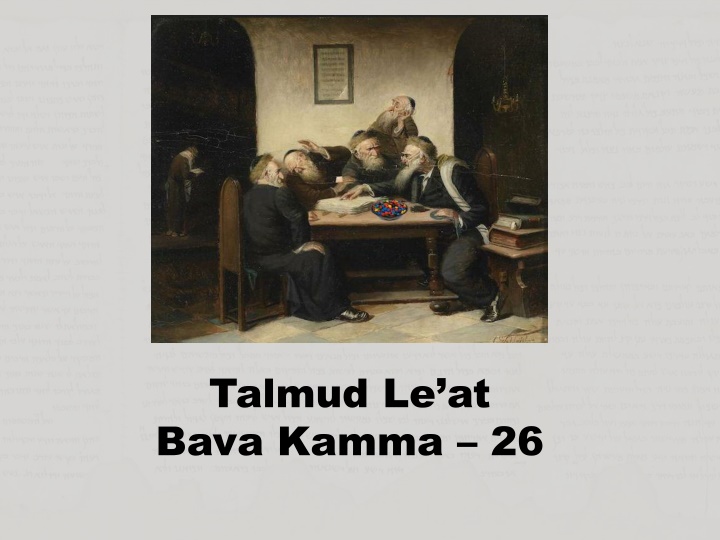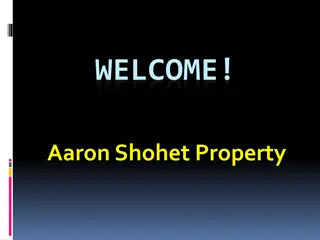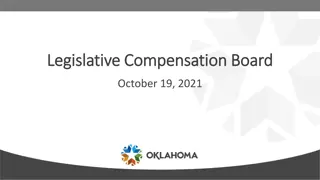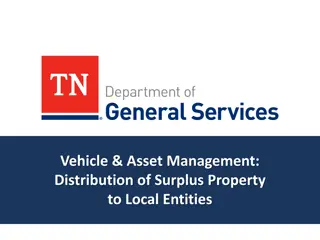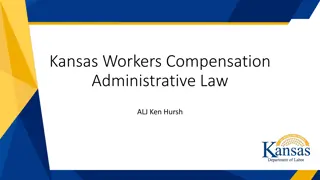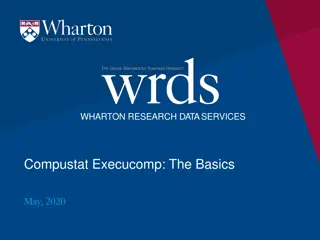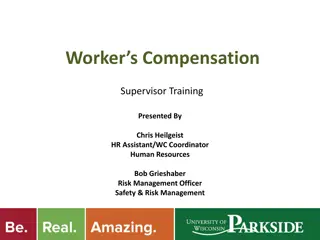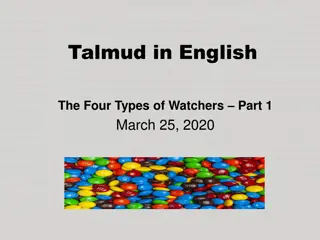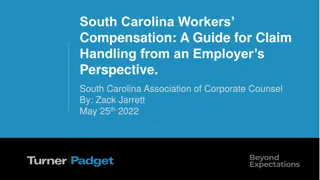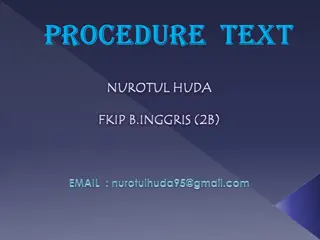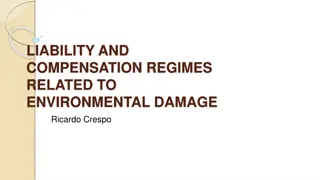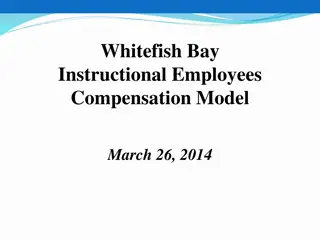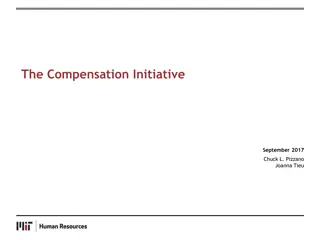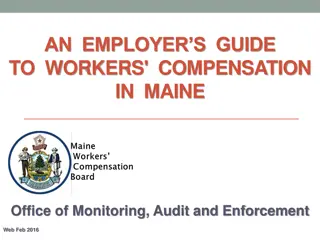Insights from Talmudic Texts on Property Rights and Compensation
Explore intricate discussions from Talmudic texts like Bava Kamma on topics such as damages caused by animals, rental disputes, and benefiting from others' property. Delve into legal interpretations and principles regarding ownership, losses, and compensation in various scenarios.
Download Presentation

Please find below an Image/Link to download the presentation.
The content on the website is provided AS IS for your information and personal use only. It may not be sold, licensed, or shared on other websites without obtaining consent from the author.If you encounter any issues during the download, it is possible that the publisher has removed the file from their server.
You are allowed to download the files provided on this website for personal or commercial use, subject to the condition that they are used lawfully. All files are the property of their respective owners.
The content on the website is provided AS IS for your information and personal use only. It may not be sold, licensed, or shared on other websites without obtaining consent from the author.
E N D
Presentation Transcript
Talmud Leat Bava Kamma 26
Review Mishnah 2:2 Fit to Eat Objects that move between domains Clothing & Utensils Animal benefits Maimonides Summary Damages by Tooth Where the damage takes place Compensation for benefit 2 Talmud Le'at - 26
Bava Kamma 20a : ? , " : " ? R. Hisda said to Rami b. Hama: You were not with us yesterday within the boundary when we inquired about some exceptional matters. He said: What were the exceptional matters? He answered: one who occupied his neighbor's courtyard without his knowledge, does he need to pay rent or does he not need to? 3 Talmud Le'at - 26
Bava Kamma 20a ? , , , What are the circumstances? If you say the courtyard did not stand to rent out, and the man would not have rented, this one does not benefit and this one does not lose. Rather, a courtyard that did stand to rent out and a man who rented, this one benefits and this one loses 4 Talmud Le'at - 26
Bava Kamma 20a ? " : " " "! ? It is not necessary where the courtyard did not stand to rent out and the person needed a place to rent What? Can he say to him, What loss did I cause you? or perhaps he can say, You derived benefit!" 5 Talmud Le'at - 26
Bava Kamma 20b ! ? , " : " : " : He said to him: It is a Mishnah! What Mishnah? He said to him: you will perform for me some service He took his scarf and folded it for him He said to him: if it benefited, he pays what it benefited 6 Talmud Le'at - 26
Bava Kamma 20b : ! " , Rava said: How one whom the Lord helps has to worry or be concerned! For even though it is not similar to the Mishnah, accept it from him. This one benefited and the other lost, and this one benefited and this one did not lose 7 Talmud Le'at - 26
Bava Kamma 20b ? And Rami b. Hama? Ordinarily, fruit in the public domain has been made ownerless 8 Talmud Le'at - 26
Bava Kamma 20b , : ; , We learned: One who surrounds his neighbor on three sides, and he fences the first, second and third; we do not obligate him But the fourth, we do obligate him 9 Talmud Le'at - 26
Fields Reuven Reuven Reuven Shimon 10 Talmud Le'at - 26
Bava Kamma 20b " , " : " , Learn from this: this one benefits and this one does not lose, he is liable It is different there, for he could say to him, You caused me the additional fence 11 Talmud Le'at - 26
Bava Kamma 20b , " , : : " Come and hear: R. Yose says: If it is surrounded, he got up and enclosed the fourth, we impose on him all The reason is that the surrounded enclosed The surrounded is exempt 12 Talmud Le'at - 26
Bava Kamma 20b " , " : " Learn from this: this one benefits and this one does not lose, he is liable It is different there, for he could say to him, For me the protection worth one zuz would have been sufficient 13 Talmud Le'at - 26
1st Century Israelite House 14 Talmud Le'at - 26
Bava Kamma 20b ; : " , Come and hear: a house and an upper room belonging to two, upper room collapsed; the owner of the upper room said to the owner of the house to rebuild, but he did not want to, the owner of the upper room may build a house and live in it until he pays for his expenses. His expenses the owner of the house is liable, but his rent, no 15 Talmud Le'at - 26
Bava Kamma 20b " : : Learn from this: this one benefits and this one does not lose, he is exempt It is different there because the house is subject to the upper room 16 Talmud Le'at - 26
Bava Kamma 20b : : " , Come and hear: R. Yehuda said: Even this one who lives in his fellow s courtyard without him knowing, needs to pay him rent 17 Talmud Le'at - 26
Bava Kamma 20b " , : Learn from this: this one benefits and this one does not lose, he is liable That case is different because of the blackening of the walls 18 Talmud Le'at - 26
Bava Kamma 20b "? . : " : " " . : " " . They sent to the academy of R. Ammi. He said: What did he do to him? What did he cause him to lose? What damage did he do? R. Hiyya b. Abba said: Let us consider the matter They sent again to R. Hiyya b. Abba. He said: They keep on sending to me. If I had found the reason, would I not have sent them? 19 Talmud Le'at - 26
Bava Kamma 20b : " : : It was stated: R. Kahana said in the name of R. Yohanan: He does not have to pay him rent R. Abahu said in the name of R. Yohanan: He does have to pay him rent 20 Talmud Le'at - 26
Bava Kamma 20b : : , , ; , R. Papa said: That which R. Abahu stated was not stated explicitly but was stated by inference For we learned: If he removed a stone or a beam belonging to Temple property, this is not sacrilege. Gave it to his friend, he is guilty of sacrilege, but his fellow is not guilty 21 Talmud Le'at - 26
Bava Kamma 20b , : If he built it into his house he is not guilty of sacrilege until he lives beneath it equivalent of a perutah And Shmuel said: about this when he placed it on a skylight 22 Talmud Le'at - 26
Bava Kamma 20b ' : , , And R. Abahu was sitting before R. Yohanan and said in the name of Shmuel: This says the one who lives in his neighbor's courtyard without him knowing, needs to pay him rent, and he kept silent. And he understood from his silence that he agreed with him 23 Talmud Le'at - 26
Bava Kamma 20b ; : , But not so; he paid no attention to him It is in accordance with Rabbah, as Rabbah says: sacred property without knowledge is like an ordinary person with knowledge 24 Talmud Le'at - 26
Bava Kamma 20b : : , : ? : " R. Abba b. Zavda sent to Mari the son of Mar: Ask of R. Huna: one who lives his neighbor's courtyard without his knowledge, must he pay him rent or not? Meanwhile, R. Huna died. Rabbah b. R. Huna said to him: Thus said my father, my Master, in the name of Rav: He need not pay him rent 25 Talmud Le'at - 26
Bava Kamma 20b ? , ? ? : , And one who rents a house from Reuven must pay rent to Shimon. Shimon? What did he do? This is saying: If it turns out that the house belongs to Shimon, pay him rent 26 Talmud Le'at - 26
Bava Kamma 20b ? , Two? This where it is for rent, this where it is not for rent 27 Talmud Le'at - 26
Bava Kamma 20b " : ' ; : ? , ? : It was also stated: R. Hiyya b. Avin said Rav said (and some say R. Hiyya b. Avin said R. Huna said): He who lives in his neighbor's courtyard without him knowing, need not pay rent; but one who rents a house from the people of the town must pay rent to the owners. Owners? What did they do? This is what it means: If they find the owners, then he pays them rent 28 Talmud Le'at - 26
Bava Kamma 20b ? , And two? This where it is for rent, this where it is not for rent 29 Talmud Le'at - 26
Bava Kamma 20b : , , " " R. Sehorah said R. Huna said Rav said: He who lives in his neighbor's courtyard without his knowledge, need not pay him rent, as it says, Desolation remains in the city, and the gate is stricken unto ruin (Isaiah 24:12) 30 Talmud Le'at - 26
Isaiah 24:12 and with destruction the gate is stricken desolation in the city is left and with demons 31 Talmud Le'at - 26
Bava Kamma 20b : : Mar bar R. Ashi said: I have seen this and it gores like an ox R. Yosef said: A house that is lived in, is settled 32 Talmud Le'at - 26
Bava Kamma 20b ? What is between them? Between them he uses them for wood and straw 33 Talmud Le'at - 26
Bava Kamma 20b ? " A certain person built a villa upon a garbage heap that had belonged to orphans R. Nahman confiscated the villa from him Shall we say that R. Nahman holds that he who lives in his neighbor's courtyard without his knowledge must pay him rent? It that Carmanians were initially living and used to pay the orphans a small rent He said to him: Go and appease the orphans and he did not listen to him R. Nahman confiscated his villa 34 Talmud Le'at - 26
